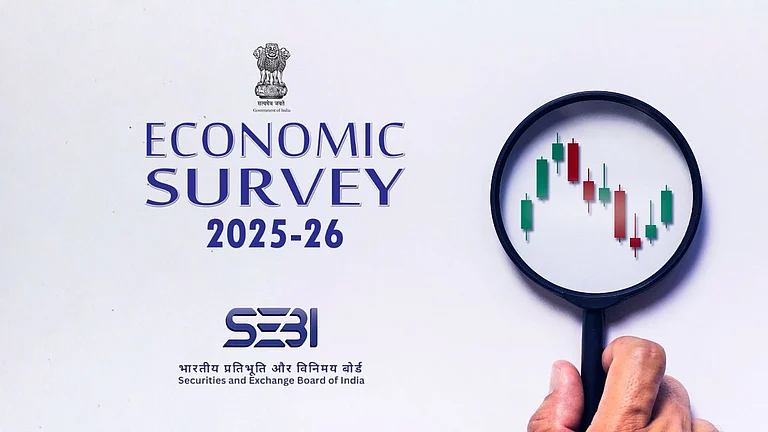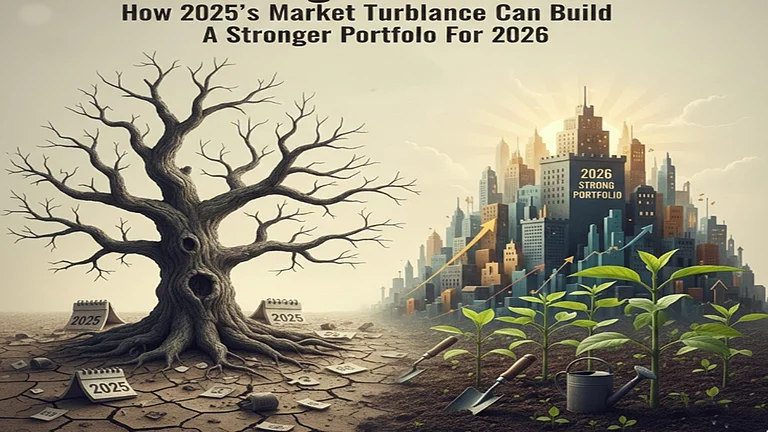Investing in the age of quick commerce and instant gratification is not easy. It is a task that is fraught with expectations of instant results. In the world of investing, this feeling of returns or results not aligning with expectations often manifests itself in the form of frustration. This frustration then leads to investors attempting to ‘time the market.’
The practice of ‘timing the market’ involves predicting the potential rise or fall in the price of a security and buying or selling the security accordingly. However, recently, a LinkedIn post by Jairam Sridharan, the Managing Director of Piramal Finance, showed how sometimes investing more time in the market can be a better approach than attempting to time the market. He showed how his investment of Rs 10,100 turned into Rs 7.9 lakh over the course of nearly 25 years.
Sridharan shared in his post that soon after he joined the workforce in 1998, he decided to also start his investing journey. Sridharan added that his first investment was made in the year 1999, as he purchased Equity Linked Savings Scheme (ELSS) units for Rs 10,100. He mentioned that the value of his investment has grown to Rs 7,90,457.8 in the last 25 years. Notably, Sridharan purchased the units of the ICICI Prudential ELSS Tax Saver Growth scheme.
In percentage terms, Sridharan’s investment grew by 7726.31 per cent in nearly twenty-five years. In the same time period between 1999 and 2025, the Nifty 50 index has grown by 1789.84 per cent from 1326.15 level to 25062.1 level. On the other hand, the 30-share Sensex has also grown from 4,672.12 by 1659.03 per cent to 82184.17 levels.
On the other hand, the investment made by Sridharan has grown at a compounded annual growth rate of 19.05 per cent. The CAGR of the 30-share Sensex in the same time period is 12.15 per cent, and the CAGR of the Nifty 50 index is around 12.48 per cent. Emerging markets generally witness faster growth. The headline indices have also grown significantly in the last twenty-five years. However, by looking at Sridharan’s investment, we can understand that to make the most of this growth, it is important to stay invested in the market.
Notably, in the last 25 years, the market also saw many dips such as the Dotcom bubble bursting in 2000, the Ketan Parekh stock scandal in 2001, the global market meltdown in 2005, the US Market crisis in 2008, or the more recent events such as the COVID-19 pandemic or the India-Pakistan conflict. Typically, when the market dips, investors tend to get spooked and sell their securities to recover their investment or lower their losses. However, Sridharan’s decision to hold onto his investment contributed to the gains he made.
Sridharan explained his investment philosophy in his post. He mentioned that soon after making his investment in 1999, he shared a quote by the Oracle of Omaha, Warren Buffett, who said “𝘔𝘺 𝘧𝘢𝘷𝘰𝘶𝘳𝘪𝘵𝘦 𝘩𝘰𝘭𝘥𝘪𝘯𝘨 𝘱𝘦𝘳𝘪𝘰𝘥 𝘪𝘴 𝘧𝘰𝘳𝘦𝘷𝘦𝘳”. The famous Warren Buffett quote also highlights the many benefits of long-term investing.
Investing with a longer time horizon has several benefits, such as the compounding of returns, wherein your returns are reinvested and you accrue interest on both your initial investment and the accumulated earnings. Additionally, long-term investing also helps investors in smoothing out the sudden dips the market makes as it factors in negative news.
Long-term investing also helps investors in braving short-term volatility. However, long-term investing requires financial discipline and patience. While staying invested in the market for longer time periods has many advantages, investors should evaluate their portfolios and adopt investment approaches that align best with their financial goals.















